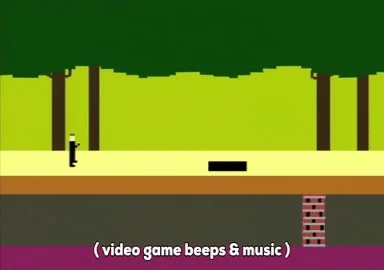Originally published at: How did Atari die? | Boing Boing
…
The sale to Warner engraved the writing on the wall. Giving control to MBAs obsessed only with the next quarter’s results will kill any competitive advantage enjoyed by a company that depends on creativity and innovation.
On a business trip a few years ago, I realized I was a few minutes away from the legendary headquarters. I drove over and was kinda bummed to find it was just a boring (and empty) office building now.
I made the same visit back when I worked in and around Silicon Valley. Not much to look at from the outside.
The good part was that Weird Stuff Warehouse was just down the street, which made my visit a much more satisfying experience.
At 16 my BFF and I drove from LA to San Jose or wherever on the peninsula their crappy little building was and said hello. It was depressing.
When you think you’re going to visit Wonka’s chocolate factory and end up at Dunder Mifflin.
There is also the blade runner curse.
Nah. They’re due for a surprise comeback any time now.
I had a similar experience visiting the Microsoft campus in the Seattle area. Hoofing it between a few buildings is Nintendo of America. It’s… Just another grey building. I assume it’s filled with magic though, not visible from the outside.
Atari didn’t die, they just pressed the hyperspace button.
Not waiting to get the timing right to swing across the swamp?

Dude, that’s Activision.
You fell for an obvious pitfall.
Tip of the pith helmet to you, @generic_name
insert “boom-ching” gif here–
I must say, and this dates me, Pitfall was a very cool game, and Pitfall 2 even better. Activision games tended to look amazing for the era but have kind of boring gameplay, but the Pitfall games were an exception.
It’s gotten so bad for the former video game giant that…
…back in the '90s they got reduced to a name that was sold to be worn as a skin-suit to an existing game publisher, after which it got further passed on to a series of holding companies that use the name to pretend they actually do something. Worse, with different divisions of Atari having been split up into separate companies back in the '80s, the name has been divided between a variety of shell corporations, some of which don’t even have rights to the (mostly worthless) game IPs.
So now when you see the name “Atari,” it’s most likely to be a company with no assets looking to get investments for some idiotic scheme from people who still have some nostalgic association with the name.
That’s one of the funny bits about attempts to capitalize on Atari’s name, by the skin-suit-wearing holding companies that own their old IPs - almost all the good “Atari” games were actually third-party. What “Atari” is left with is the rights to mostly forgettable games with gameplay so archaic the only thing that actually has any value is the names (e.g. the right to call a game “Haunted House”). Anyone buying these modern retro-consoles that have “all the Atari games” bundled on them finds all their favorites conspicuously absent.
… which is why it’s just easier to roll one’s own using a Raspberry Pi 4, the RetroPie image, and some searching for roms on your favorite pirate sites. (I still think that some of the IP holders might be able to squeeze a few more dollars out of those things by licensing them to an aggregation company, or forming a company to make ‘offiical’ RetroPie distributions with the roms included and the configuration issues worked out. I know, I need to shut up.)
And to be perfectly honest. Even those favorites aren’t terribly compelling in this day an age.
So it’s very much a retro-enthusiast and nostalgia collector thing. There’s not a ton of kids that are gonna be wowed by Combat these days. So it’s reliant on you having a favorite.
The pitches you hear on licensing these things as anything more than a graphic on a t-shirt always kind of mystify me. Like pitching a Howdy Doody movie in this day and age.
I was always baffled by these retro-consoles because of that. Especially since the retro-consoles cost so much (big profits for the holding company and actual manufacturer). They always try to sell them as something much grander than they actually are (and have higher tech specs than necessary), when even an “official licensed” collection of Atari games on the hardware necessary to run them can be sold for almost nothing. (Though I guess they’ve done a few of those as well - self-contained joysticks with all the hardware and games inside.)
Yeah, the archaic gameplay (that’s been evolved by generations of subsequent games, including a lot of free games) doesn’t hold a lot of appeal, which makes it extra-disappointing when the “Atari game collections” don’t even have anything remotely worth playing, even for that generation that remembers Atari and is feeling nostalgic. Plus, any of those gamers who didn’t give up video games when Atari collapsed have already seen (and played) many of the subsequent clones, further reducing the nostalgia market.
Which I suppose is part of why the branded retro-consoles always hint at new versions of the old games with “updated” gameplay, but there’s no there, there. The gameplay is so crude that there’s no way to leap from the originals to modern gameplay without losing any kind of connection to the original game. So all you’re left with is nostalgia for the Atari name, which doesn’t sell many consoles, ultimately. Nor does it find many developers willing to pay a hefty license fee to use the name of an old Atari game with few fans to make a new game for a failing console.
The whole thing is just layers of sad.
